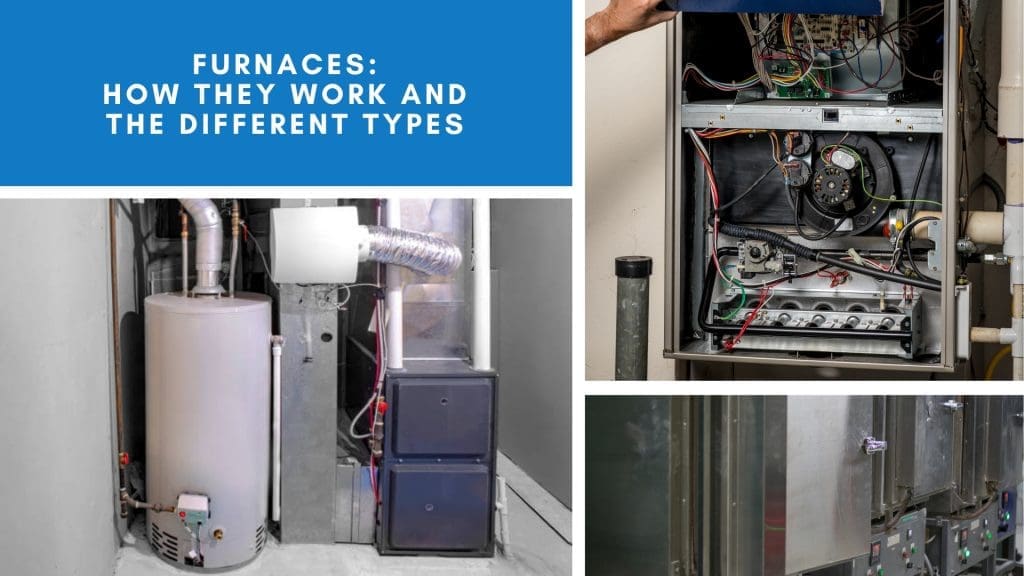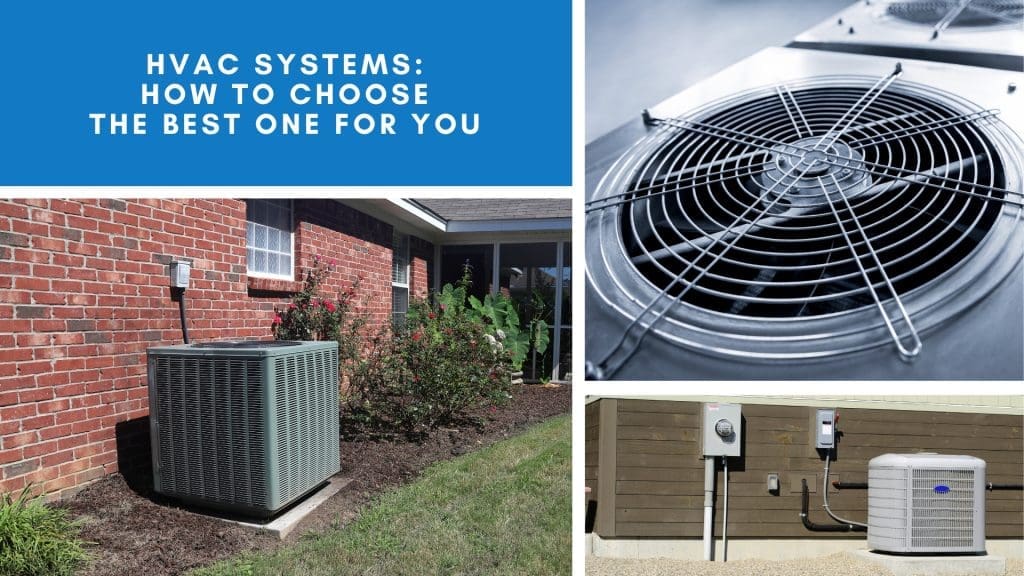Furnace air filters are not just accessories; they are essential components of your HVAC system. They trap dust, allergens, and other airborne particles, improving indoor air quality and protecting your system from damage. Without a proper filter, your HVAC system could circulate dust and debris, leading to potential breakdowns and decreased efficiency.
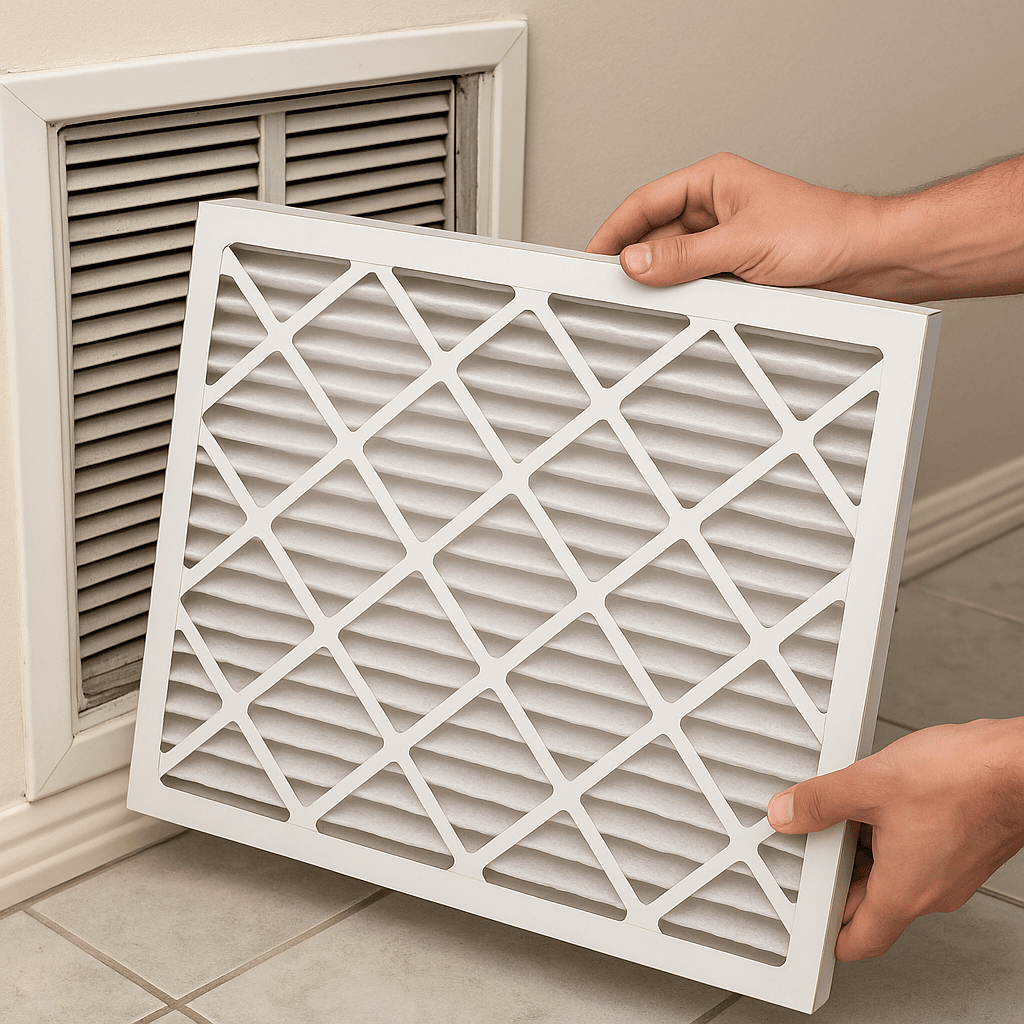
Enhancing Indoor Air Quality
The primary function of furnace air filters is to enhance indoor air quality by capturing airborne particles. Dust, pollen, and pet dander are just a few examples of irritants that filters can trap. By doing so, they prevent these particles from recirculating in your home, which is especially beneficial for individuals with allergies or respiratory issues. Cleaner air translates to a healthier living environment for you and your family.
Protecting HVAC Components
Air filters play a critical role in safeguarding the internal components of your HVAC system. By preventing dust and debris from entering the system, filters help reduce wear and tear on essential parts like fans and motors. This protection is essential for extending the lifespan of your HVAC system, thereby saving on costly repairs or replacements in the long run.
Ensuring Energy Efficiency
A well-maintained air filter contributes to the overall efficiency of your HVAC system. When filters become clogged with debris, the system has to work harder to circulate air, leading to increased energy consumption. By regularly replacing your filters, you ensure that your system operates at peak efficiency, which can result in lower energy bills and a reduced carbon footprint.
Identifying Your Furnace Filter Location
One of the most common questions homeowners ask is, “Where is my furnace filter located?” The answer depends on the design of your HVAC system. Here are some typical locations:
Vertical and Horizontal Furnace Filter Locations
In vertical HVAC units, the filter is usually located in the return air duct or the blower compartment. This placement ensures that all incoming air is filtered before it enters the main components of the system. For horizontal units, the filter may be placed in a slot on the side of the unit, often near the ground. It’s crucial to follow the airflow arrows on the filter to ensure proper installation.
Common Furnace Locations in Homes
Furnaces can be located in a variety of places within a home, such as basements, attics, utility closets, or garages. The location of your furnace can affect where the filter is housed. For instance, units in basements often have filters accessible from the front, while attic installations might require accessing filters from a side panel. Knowing your furnace’s location can help you efficiently locate the filter.
Difficult-to-Find Filter Locations
In some cases, furnace filters can be located in less obvious places, such as behind a return air grille or inside a wall. If you’re having trouble finding your filter, refer to your HVAC system’s manual for guidance. Alternatively, a professional HVAC technician can assist in locating and accessing your filter, ensuring that you maintain proper system performance.
Choosing the Right Air Filter for Your Needs
When selecting an air filter, consider factors such as filter type, size, and MERV (Minimum Efficiency Reporting Value) rating. Here’s what you need to know:
Types of Air Filters
- Fiberglass Filters: These are affordable and disposable but offer minimal filtration, mainly protecting the HVAC system rather than improving air quality. They are ideal for budget-conscious homeowners who don’t have severe allergy concerns.
- Pleated Filters: Made from polyester or cotton, these filters provide better filtration and are available in various MERV ratings. They balance cost and efficiency, making them a popular choice for many households.
- HEPA Filters: High-Efficiency Particulate Air filters capture over 99% of airborne particles and are ideal for those with allergies or asthma. However, they may require modifications to your HVAC system due to their dense construction.
- Washable Filters: These can be cleaned and reused, offering an eco-friendly option. However, they may not be as effective as pleated or HEPA filters, and their maintenance can be time-consuming.
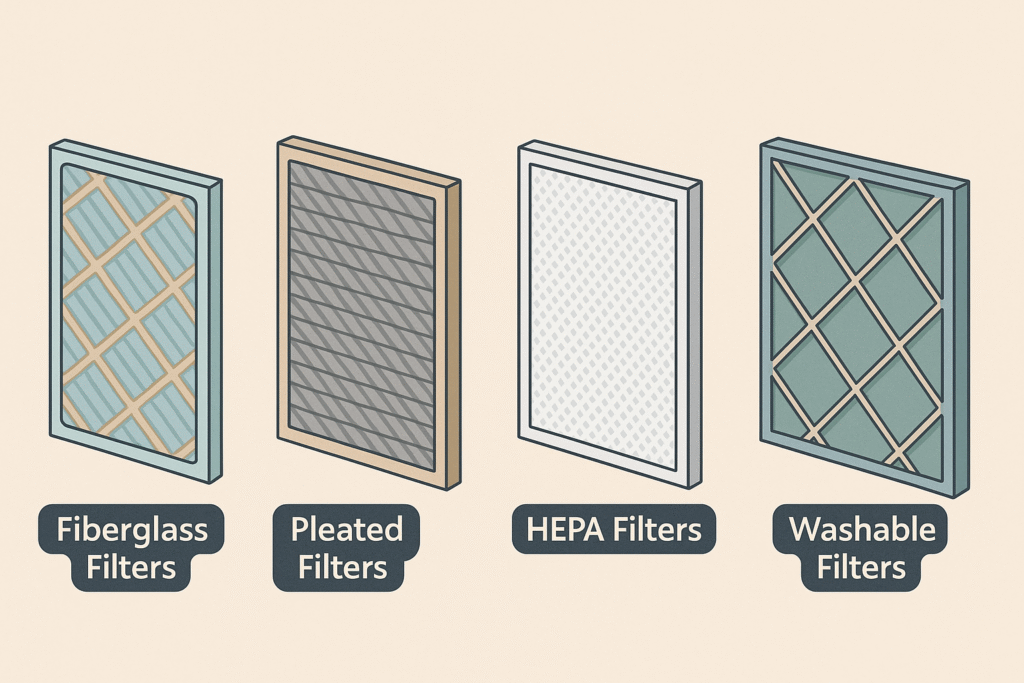
Understanding MERV Ratings
MERV ratings range from 1 to 20 and indicate a filter’s effectiveness. A higher MERV rating means a filter can capture smaller particles, improving air quality. However, filters with very high MERV ratings can restrict airflow, which might not be suitable for all systems. For most residential systems, a MERV rating between 8 and 13 provides a good balance between filtration efficiency and airflow.
Matching Filter Size to Your System
Choosing the right filter size is essential for effective filtration. Filters come in various standard sizes, so it’s important to measure your current filter or the filter slot before purchasing a replacement. A filter that is too small won’t cover the entire opening, allowing particles to bypass filtration, while an oversized filter may not fit properly, causing installation issues.
Installing Your Furnace Air Filter
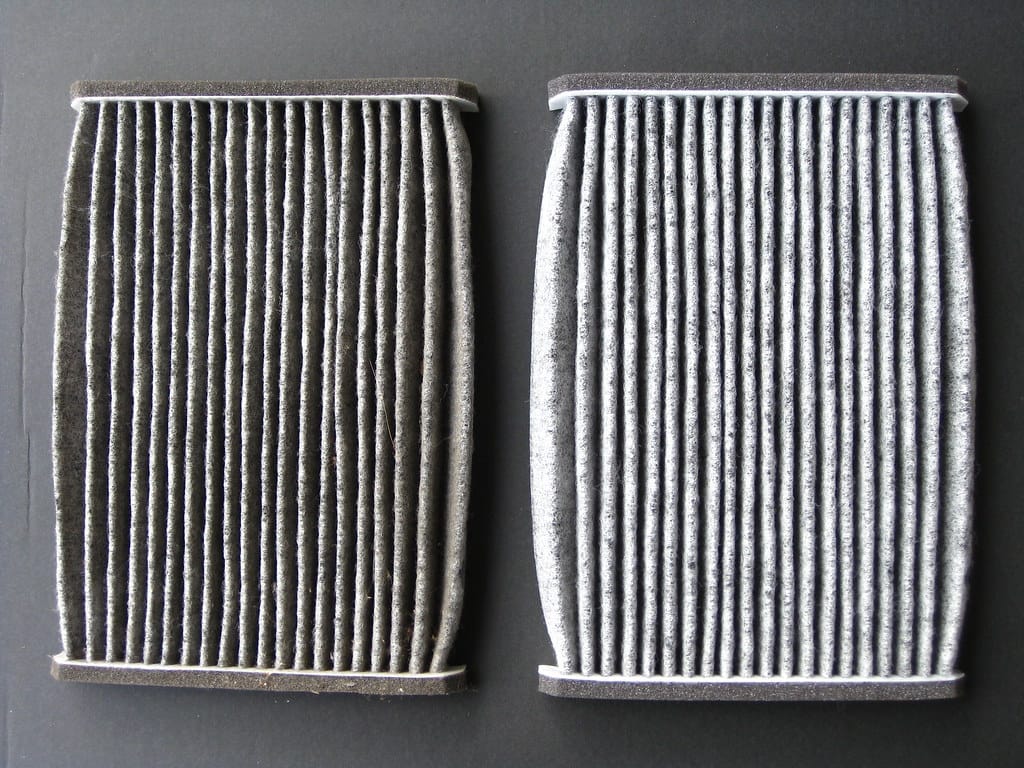
Once you have the right filter, proper installation is crucial. Follow these steps:
Turn Off the System
Before replacing the filter, ensure your HVAC system is turned off for safety. This step prevents dust and debris from being drawn into the system during the replacement process and reduces the risk of injury or damage to the system.
Locate and Remove the Old Filter
Find the filter compartment, usually near the blower or return air duct, and remove the old filter. Take note of how the old filter is positioned, as this will guide you in placing the new one. Be cautious when removing the filter to avoid spreading dust and debris.
Insert the New Filter
Ensure the new filter’s airflow arrows point in the direction of the system’s airflow. This direction is typically towards the blower. Proper orientation is crucial for optimal performance, as it ensures that the filter captures particles efficiently without obstructing airflow.
Secure the Filter
Close the filter compartment and ensure it’s properly sealed to prevent air leaks. A tightly sealed compartment ensures that all air passes through the filter, maximizing its effectiveness. Periodically check the seal to ensure it remains intact over time.
Troubleshooting Common Air Filter Issues
If you’re experiencing issues with your HVAC system, your air filter might be the culprit. Here are some common problems:
Can’t Find the Furnace Filter
If you’re having trouble locating your filter, consult your HVAC system’s manual or contact a professional for assistance. Some units may have filters in less obvious locations or multiple filters. A professional can ensure that you locate all filters and replace them appropriately.
Incorrect Airflow Direction
Installing the filter backward can restrict airflow, reducing system efficiency. Always check the airflow arrows and adjust if necessary. A backward filter can also lead to increased energy consumption and put unnecessary strain on your system.
Filter Not Fitting Properly
Ensure you have the correct filter size. A filter that doesn’t fit properly can lead to air bypassing the filter, reducing its effectiveness. Double-check measurements before purchasing, and if you’re unsure, consult with an HVAC professional to find the right fit.
Persistent System Issues
If replacing the air filter doesn’t resolve system issues, there may be other underlying problems. These could include blocked ducts, malfunctioning components, or incorrect thermostat settings. In such cases, it’s advisable to seek professional assistance to diagnose and resolve the issue.
When to Call a Professional
While replacing an air filter is a straightforward task, there are times when it’s best to call a professional. If you’re unsure about your system’s filter requirements or experiencing persistent HVAC issues, professional assistance can ensure your system is running smoothly and efficiently.
Unusual Sounds or Odors
If you notice unusual sounds or odors coming from your HVAC system, it could indicate a more serious issue. Professionals have the expertise to identify and address problems that go beyond a simple filter replacement, ensuring your system’s safety and reliability.
Complex Systems
Some HVAC systems are more complex and may involve multiple filters, special configurations, or advanced technology. In these cases, a professional can provide the necessary expertise to manage the system effectively and prevent potential damage.
Routine Maintenance Checks
Regular maintenance checks by a professional can help identify potential issues before they become major problems. Professionals can perform comprehensive inspections and recommend preventive measures to maintain your system’s health and efficiency.
Conclusion
Choosing the right furnace air filter and maintaining it properly is essential for a healthy home environment and efficient HVAC operation. By understanding the importance of air filters, knowing how to locate and replace them, and selecting the right type and MERV rating for your needs, you can ensure your home remains comfortable year-round. Should you have any questions or need professional assistance, don’t hesitate to reach out to a trusted HVAC expert.
Investing in Comfort and Health
Remember, a well-maintained HVAC system is not only about comfort but also about ensuring energy efficiency and prolonging the life of your system. By taking the time to care for your system, you’re investing in your home’s comfort and your family’s health. Regular attention to your system can help you avoid unexpected breakdowns and costly repairs.
Environmental Impact
Beyond individual health and comfort, maintaining your HVAC system also has environmental benefits. Efficient systems consume less energy, reducing your household’s carbon footprint. Choosing eco-friendly filter options and maintaining your system contributes to a more sustainable living environment.
Long-Term Cost Savings
Investing in quality air filters and regular maintenance can lead to significant long-term cost savings. By preventing major repairs and enhancing system efficiency, you reduce energy costs and extend the life of your HVAC system. These savings can be reinvested into other home improvement projects or used to enhance your family’s lifestyle.
FAQ on Choosing the Right Furnace Air Filter
What is the primary function of a furnace air filter?
The primary function of a furnace air filter is to enhance indoor air quality by capturing airborne particles such as dust, pollen, and pet dander, preventing them from recirculating in your home.
How often should I replace my furnace air filter?
It is recommended to check and replace your furnace air filter every 1 to 3 months, depending on the type of filter and your household’s specific needs, such as the presence of pets or allergies.
What are the different types of air filters available for furnaces?
The main types of air filters include fiberglass filters, pleated filters, HEPA filters, and washable filters, each offering varying levels of filtration efficiency and maintenance requirements.
How can I locate my furnace air filter?
The location of your furnace air filter can vary based on your HVAC system design. Common locations include the return air duct, blower compartment, or behind a return air grille. Consult your HVAC system’s manual for specific guidance.
When should I call a professional for HVAC issues related to air filters?
You should call a professional if you experience persistent HVAC issues, notice unusual sounds or odors, or if your system has a complex configuration that may require expert handling for maintenance or repairs.

